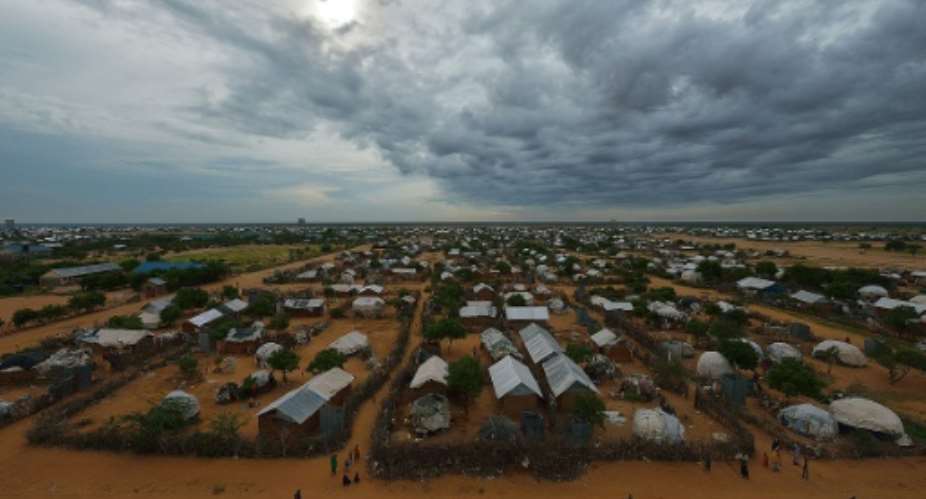United Nations (United States) (AFP) - UN Secretary General Ban Ki-moon asked Kenya's President Uhuru Kenyatta on Wednesday to reconsider his decision to close two refugee camps, including the world's largest, and send Somali refugees home.
In a telephone conversation, Ban urged Kenyatta to continue to abide by a November 2013 agreement with the Somali government and the UN High Commissioner on Refugees "as a basis for the voluntary return of Somali refugees in safety and dignity."
Kenya hosts around 600,000 refugees, some of whom have lived in the country for a quarter century.
It says it wants to close the Dadaab and Kakuma camps because they have become breeding grounds for the Al-Qaeda-linked Al-Shebab militant group and centers of crime and contraband.
Dadaab, located on the Kenya-Somalia border, is home to around 350,000 people. Kakuma in northwestern Kenya hosts around 180,000 people, almost a third of them Somalis.
Ban also said he supported a proposal by the UNHCR for a "high-level bilateral review on the refugee situation," adding that High Commissioner on Refugees Filippo Grandi would travel to Nairobi at the end of May with deputy UN Secretary General Jan Eliasson.
"They look forward to discussing this issue forward with the government of Kenya, and will underline the readiness of the United Nations to garner the support of the international community in addressing Kenya's refugee challenges, with consideration for the host communities in Kenya as well as the sub-regional security concerns," Ban said, according to a UN statement.
Since the 2013 agreement on refugee returns went into effect, only several thousand Somali refugees have gone home voluntarily.
Frustration over the lack of movement prompted the Kenyan government to announce earlier this month it would no longer taken in refugees, and would move quickly to close the two main refugee camps in the country.
The decision was criticized by Somalia and by non-governmental organizations active in the refugee camps.





 Former Kotoko Player George Asare elected SRC President at PUG Law Faculty
Former Kotoko Player George Asare elected SRC President at PUG Law Faculty
 2024 elections: Consider ‘dumsor’ when casting your votes; NPP deserves less — P...
2024 elections: Consider ‘dumsor’ when casting your votes; NPP deserves less — P...
 You have no grounds to call Mahama incompetent; you’ve failed — Prof. Marfo blas...
You have no grounds to call Mahama incompetent; you’ve failed — Prof. Marfo blas...
 2024 elections: NPP creates better policies for people like us; we’ll vote for B...
2024 elections: NPP creates better policies for people like us; we’ll vote for B...
 Don’t exchange your life for wealth; a sparkle of fire can be your end — Gender ...
Don’t exchange your life for wealth; a sparkle of fire can be your end — Gender ...
 Ghana’s newly installed Poland train reportedly involved in accident while on a ...
Ghana’s newly installed Poland train reportedly involved in accident while on a ...
 Chieftaincy disputes: Government imposes 4pm to 7am curfew on Sampa township
Chieftaincy disputes: Government imposes 4pm to 7am curfew on Sampa township
 Franklin Cudjoe fumes at unaccountable wasteful executive living large at the ex...
Franklin Cudjoe fumes at unaccountable wasteful executive living large at the ex...
 I'll 'stoop too low' for votes; I'm never moved by your propaganda — Oquaye Jnr ...
I'll 'stoop too low' for votes; I'm never moved by your propaganda — Oquaye Jnr ...
 Kumasi Thermal Plant commissioning: I pray God opens the eyes of leaders who don...
Kumasi Thermal Plant commissioning: I pray God opens the eyes of leaders who don...
